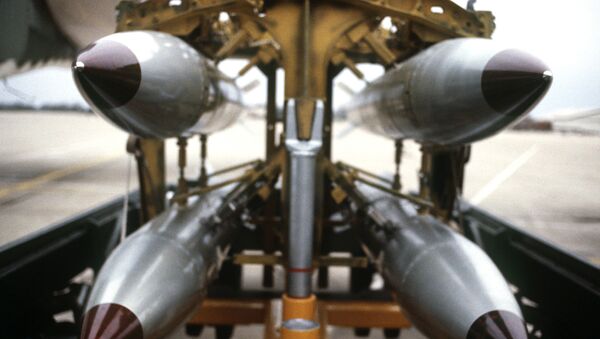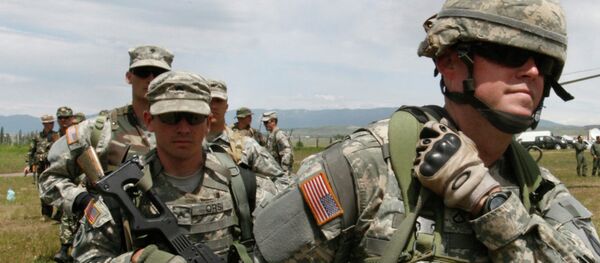However, the expert considers such a move "not a good response," claiming that it would be both useless and risky. According to Pifer, NATO should "maintain its lead in numbers of key conventional weapons" in Europe.
Pifer insisted that Russia poses a substantial threat to the European security order. Referring to the 1975 Helsinki Final Act, that stipulated that "states should not use force to change borders," the expert went so far as to falsely claim that Russia "seized Crimea militarily" in 2014. Pifer also stated that Russia is providing the Donbas independence supporters with "heavy weapons, leadership and Russian soldiers," presenting no evidence to confirm his other false claim.
Curiously enough, the expert has seemingly forgotten that the US/NATO military aggression against Yugoslavia in 1999, launched under false pretenses, had dramatically changed the borders of Europe.
"To be clear, this is not a likely scenario, nor is any Russian conventional military operation against a Baltic state," the expert admitted, adding "But is the probability zero? Three years ago, few would have foreseen what the Russian military has done in Crimea and Donbass."
Anyway, the latter still cannot be regarded as a convincing argument.
It should be noted that Pifer is not the only US expert who is beating the war drums about Russia's phantom menace. The Pentagon report entitled 2015 National Military Strategy obviously targets Russia and China, experts say.
Meanwhile the US Joint Chief of Staff nominee General Joseph Dunford has put it clear: "If you want to talk about a nation that could pose an existential threat to the United States, I'd have to point to Russia."
What are the true reasons for this warmongering?
"According to Heritage Foundation estimates, the US should increase its number of deployed TNWs [tactical nuclear weapons] in Europe from a few hundred today to a minimum of 800 weapons so that it is able to meet requirements of the protect and defend nuclear targeting strategy with respect to the Russian TNWs. These weapons should be modernized for rapid delivery. Heritage's approach also recognizes that the US targeting list will continually evolve in accordance with the threat to US interests and allies," the report stated.
The article shows that the US "party of war" had considered Russia a potential rival long before the Ukrainian crisis spiraled out of control.
Some experts suggest that the US "needs" some sort of an "external threat" to maintain its political, economic and military leadership.
After the collapse of the USSR, the US' longstanding rival, American conservative political scientist, adviser and academic Samuel P. Huntington wrote in 1997:
"Now, however, the end of the Cold War and social, intellectual, and demographic changes in American society have brought into question the validity and relevance of… traditional components of American identity."
"Without a sure sense of national identity, Americans have become unable to define their national interests, and as a result subnational commercial interests and transnational and non-national ethnic interests have come to dominate foreign policy," Huntington stressed.
It seems that the political scientist had nailed it: the US leadership has indeed become unable to define its true national interests, some experts acknowledge.
Washington's sanctions policy against Moscow has only facilitated the creation of a new Eurasian alliance of Russia and China, which are now reshaping the economy of the region leaving the US out in the cold.
So, what forces are playing the first fiddle in Washington, urging the White House to drag the country into new overseas conflicts and increase its military spending? US investigative journalist Robert Parry is pointing the finger at US neocons, who "still dominate Official Washington's inside-outside game." The journalist underscored that wars have long become a profitable business for transnational corporations and their influential lobbyists in the White House.
"So, to understand the enduring influence of the neocons… you have to appreciate the money connections between the business of war and the business of selling war," Parry remarked.
These wars cost trillions and trillions of dollars and multinational corporations including the US military-industrial complex benefit a lot from them.








